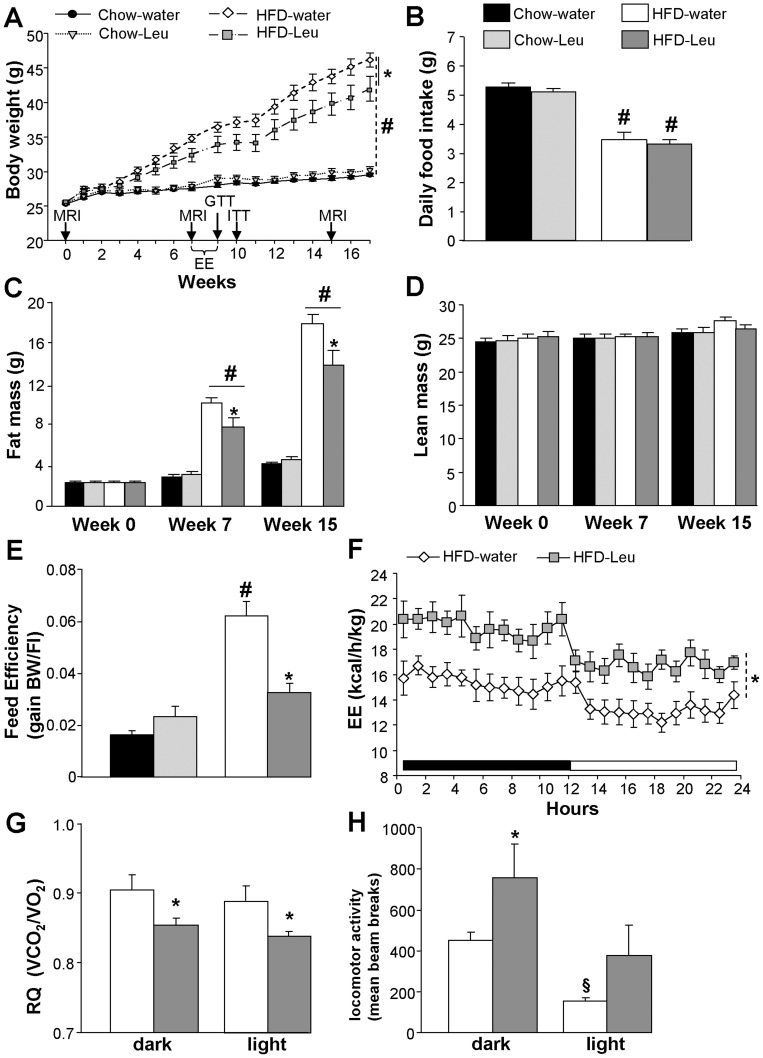Figure 1. Leucine supplementation protects from HF-induced body weight gain and adiposity by increasing energy expenditure and fatty acid oxidation.
(A) Body weight curve and (B) mean daily food intake of mice exposed to HFD or chow and supplemented or not with leucine in drinking water (n = 10–11 per group). (C) Fat mass and (D) lean mass at week 0 (baseline), as well as at weeks 7 and 15 of the study (n = 10–11 per group). (E) Feed efficiency in chow-fed and HFD-fed mice supplemented or not with leucine in drinking water (n = 10–11 per group). Energy expenditure (F), respiratory quotient (G) and locomotor activity (H) in HFD-fed mice supplemented or not with leucine in drinking water (n = 6–8 per group). Arrows in (A) indicates when in vivo experiments were carried out. EE: energy expenditure analysis; MRI: magnetic resonance imaging whole-body composition analysis; RQ: respiratory quotient. * p<0.05 vs. HFD-water group; # p<0.05 vs. chow-fed groups, § p<0.05 vs. dark phase.

